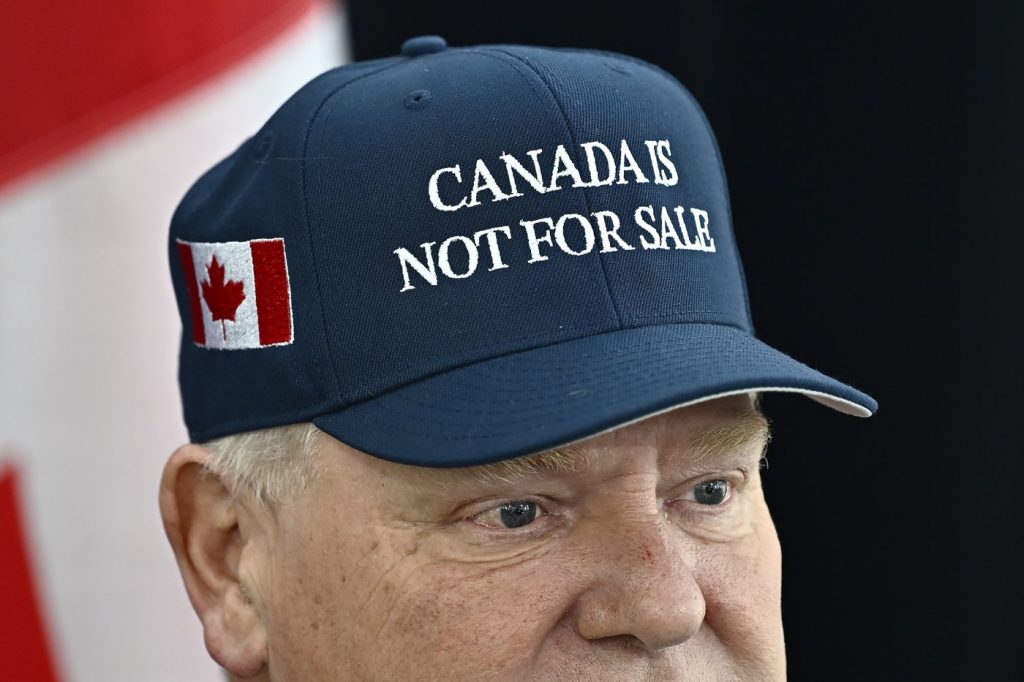TORONTO – Liam Mooney and Emma Cochrane, the Ottawa-based marketers behind the viral "Canada is not for sale" hats, have embarked on a challenging journey in manufacturing rather than merely focusing on political statements. The hats gained fame after Ontario Premier Doug Ford wore one during a meeting, sparking massive interest in their product.
The concept for the hat emerged on January 8, 2025, as Mooney and Cochrane reacted to comments made by former U.S. President Donald Trump regarding the annexation of Canada. By the end of that day, they had devised a design and secured their initial sales. The hats were initially produced on a made-to-order basis, with customers receiving embroidered caps as orders came in.
Following Premier Ford’s endorsement on January 15, 2025, orders skyrocketed to approximately 50,000 hats, prompting the pair to seek a scalable manufacturing solution. However, they found that creating hats entirely in Canada was daunting due to high production costs and a lack of domestic manufacturing capabilities. Many apparel producers expressed that they no longer manufacture hats fully in Canada due to cost inefficiencies compared to overseas production.
Mooney and Cochrane discovered a few Canadian suppliers able to produce hats solely within the country, but they opted to rely on imported caps from Vietnam, Bangladesh, and China, as well as toques from the U.S., which they embroider in Canada. This decision stems from the long-term decline of Canada’s textile industry, which was once thriving in cities like Toronto, Montreal, and Winnipeg but lost much of its manufacturing capacity to overseas competitors by the 1980s due to cheaper labor and materials available abroad.
According to Henry Navarro Delgado, an associate professor of fashion at Toronto Metropolitan University, manufacturing garments like jeans, which require various components, has become nearly impossible in Canada. He pointed out that while Canadian apparel production does exist, it primarily revolves around specialized items like military and firefighter uniforms, and even then, many materials used are not sourced from Canada. The result is a high retail price for locally made items, causing consumer shock when facing the contrast to cheaper options available internationally.
Jimil Ataman, an assistant professor at the University of Alberta, noted that, while many small Canadian businesses continue to strive by importing materials and relying on local seamstresses, the overall cost of producing items ethically under Canadian labor laws is significantly higher. For example, Mooney and Cochrane’s hats are priced between $45 and $55, while toques are sold for around $40, reflecting the elevated costs of domestic manufacturing.
As Mooney and Cochrane navigate the landscape of apparel production, they have been embroidering hats in Toronto, ramping up their output to 1,000 units per day. Despite facing production challenges, they express gratitude for the support they have received from the Canadian public. Mooney described it as a humbling experience to witness the solidarity as so many people rallied to aid their endeavor, showing that in difficult times, Canadians stand united.
This story illustrates the complexities surrounding domestic apparel production in Canada, and the ongoing quest for a balance between ethical manufacturing and consumer affordability in an increasingly globalized market.










